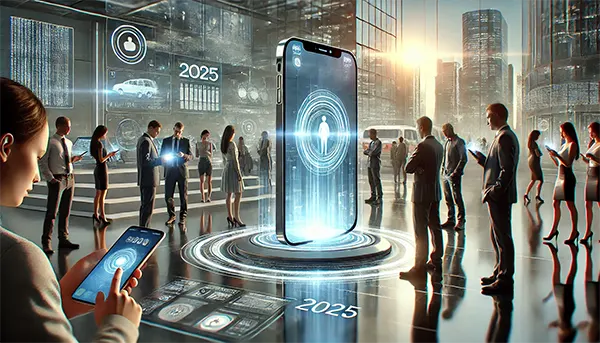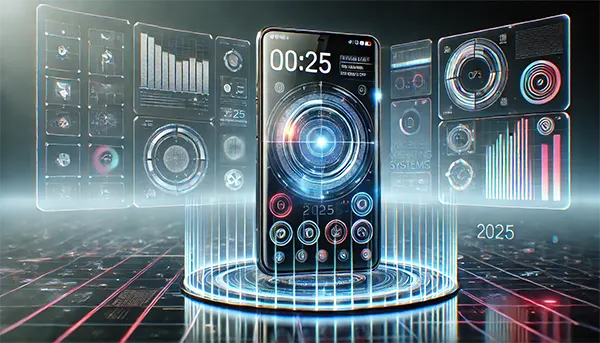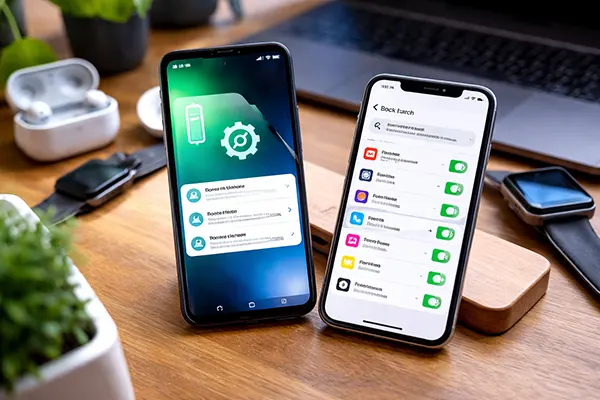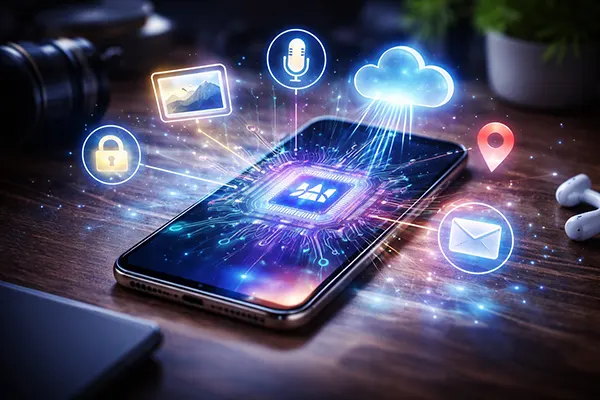The Future of Mobile Operating Systems: What to Expect in 2025 and Beyond

The Future of Mobile Operating Systems: What to Expect in 2025 and Beyond
Mobile operating systems (OS) are at the heart of modern mobile technology. They power smartphones, tablets, and various other devices, providing the foundation for all mobile applications and services. With rapid technological advancements, mobile operating systems are undergoing major transformations, and by 2025, we expect to see significant changes that will affect how these systems function and interact with users. From the integration of artificial intelligence to new security protocols, the future of mobile OS is both exciting and essential for shaping the future of mobile technology.
Trends in the Development of Mobile Operating Systems
Mobile operating systems (OS) have always been the foundation for the development of mobile technologies. They power smartphones, tablets, and other mobile devices. With the advancement of technology, we expect significant changes that will impact their characteristics. In 2025, the key trends in mobile OS will include the integration of artificial intelligence (AI) and improved security. Operating systems will become smarter, predicting user needs and optimizing device settings for easier use. Furthermore, new AI-driven features will integrate with other technologies, such as the Internet of Things (IoT), allowing mobile OS to become more versatile and integrated into our lives. This will not only enable easier management of mobile devices but also provide more precise recognition of user needs through personalized features. The implementation of the latest machine learning algorithms will allow mobile devices to learn from user interactions and automatically adjust to their behavior and habits.
Use of Artificial Intelligence
Artificial intelligence (AI) is already being actively integrated into mobile operating systems, and its role will be even more crucial by 2025. With the development of AI, mobile operating systems will become more “intelligent,” capable of predicting user needs. For example, OS will be able to predict which apps are most frequently used in various situations and automatically launch them, making it easier to access necessary features. Additionally, intelligent systems will make personal assistants based on voice commands more accurate and natural. For users, this means their devices will better adapt to their habits and even recommend new actions that may be useful in different scenarios. For instance, an OS based on AI may predict the need to activate “Do Not Disturb” mode during meetings or at certain times of day.
Mobile OS and the Development of Apps
Mobile apps are an integral part of operating systems, and their development will define the functionality of mobile devices in the future. By 2025, we expect mobile platforms to introduce new ways of integrating apps with the real world through augmented reality (AR) and virtual reality (VR). These technologies will allow the creation of new types of apps that provide an interactive and immersive experience. For example, in games, AR users will be able to interact with virtual characters that appear in real-world environments, or shopping apps will allow users to virtually try on clothes. Given the rapid development of these technologies, by 2025, there will be an increase in the number of apps actively using AR and VR, and these technologies will be integrated into mobile operating systems.
Augmented Reality and Apps
Augmented reality (AR) will be a key direction for the development of mobile OS apps in the coming years. Thanks to AR, users will be able to interact with the world in a new way, receiving real-time information directly on their device screens. For example, in online shopping, AR will allow users to virtually try on clothes or shoes, which will significantly improve the shopping experience. By 2025, AR technologies will be actively used in various areas of life, including education, healthcare, and navigation. These technologies will help users get additional information about the objects around them, as well as get directions for navigating through space. Additionally, AR will play an important role in entertainment, creating new possibilities for interactive gaming.

Security of Mobile Operating Systems
Security of mobile devices has always been one of the major concerns of modern operating systems, and it will remain relevant in 2025 and beyond. As before, mobile OS will need to integrate the latest technologies to protect users’ personal data. It is expected that new versions of mobile OS will be equipped with more powerful security tools, such as biometric authentication, enhanced data encryption, and better systems for detecting malicious software. The implementation of these features will reduce the number of cyber threats and increase the level of privacy for users. One of the main directions for development will be improving the technology for protecting personal data, which will ensure greater security even in the face of growing cyber threats.
Protection of Personal Data
With the growing number of mobile users and their access to online platforms, protecting personal data will become a priority for mobile operating systems by 2025. Since more and more users store sensitive information on their mobile devices, OS will implement additional layers of protection. For example, by 2025, we can expect the introduction of multi-factor authentication, which will further enhance user security. Furthermore, new machine learning algorithms will allow mobile OS to detect potential threats and malicious apps at early stages, preventing possible risks. Additionally, more OS will focus on ensuring privacy, including new mechanisms for securing data in cloud services and on mobile devices. This will give users more confidence in the security of their personal data.
The future of mobile operating systems looks very promising. It is predicted that the integration of new technologies, such as artificial intelligence, augmented reality, and enhanced security, will create more efficient and secure mobile OS. However, the main goal of these changes is to ensure the convenience and security of users, which will allow devices to become even more integrated into our daily lives.




